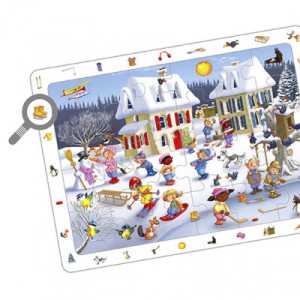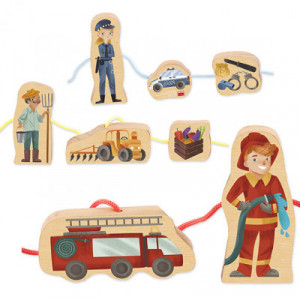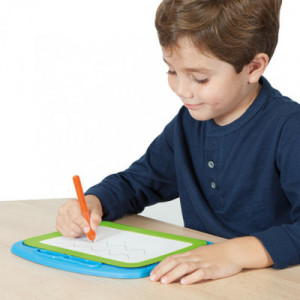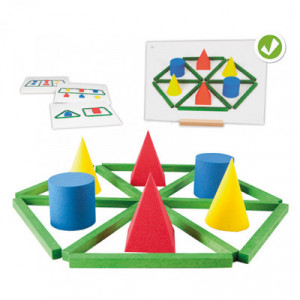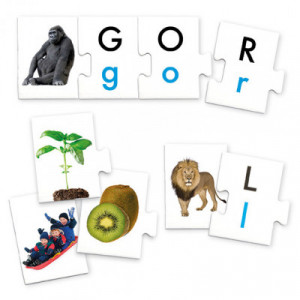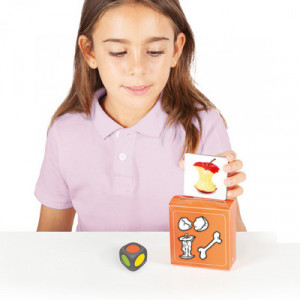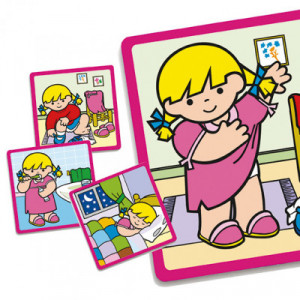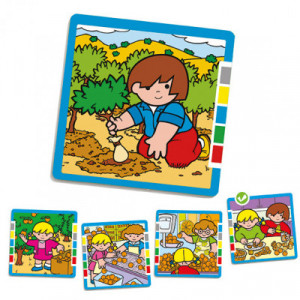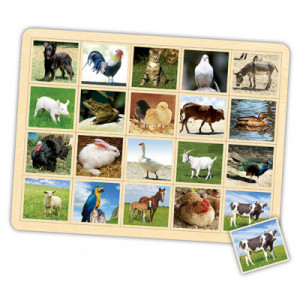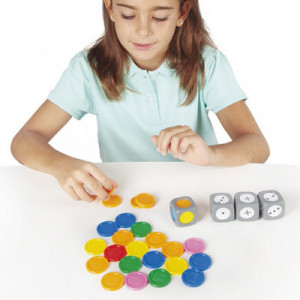Games of attention and concentration
In both children and adults, the ability to attend and be concentrated is important for perceiving and acquiring new learning.
In order for children to be able to concentrate on a task, it must capture their attention and arouse their curiosity. That's why when choosing activities or games, we must take into account the tastes and preferences of each child, to ensure that their level of attention is high.
We can train concentration, attention and memory through exercises, games and activities that amuse us. The following selection of games work the attention in children and adults. Choose the one that best suits your needs.
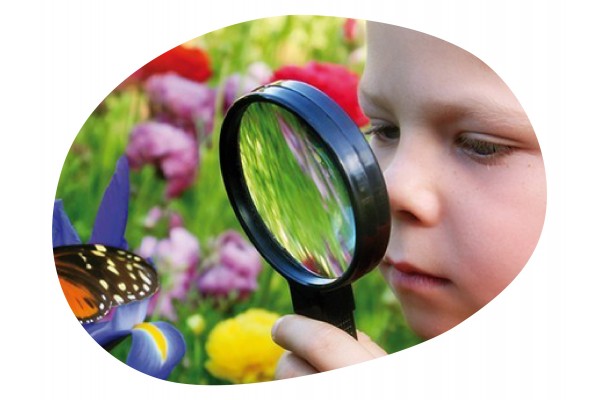
What is the difference between attention and concentration?
Despite the fact that these are similar processes, we can affirm that attention is the previous step to concentration, since it is impossible to be concentrated on something without giving it our full attention.
Concentration is considered to be a psychic process supported by reasoning that focuses attention on something specific, i.e., that completely fixes attention on something concrete, without distractions.
Attention, on the other hand, is the ability to voluntarily focus the mind on an objective. It usually begins as an unconscious process (launched by the left hemisphere of the brain) that is maintained by the conscious will (governed by the right hemisphere).
The study of attention span can be developed from a double perspective:
- Attention understood as the faculty of perception to discriminate between environmental stimuli which are the most relevant.
- Attention understood as a mechanism that governs cognitive processes.
It is very complex for young children to focus their attention on something, unless it is a very striking stimulus, precisely because of the number of children they receive every day. However, like other cognitive processes, the ability to pay attention, and later the ability to concentrate on a specific objective, can be trained.
Characteristics of attention
The quality of care can be analyzed through the information provided by its properties. They are as follows:
- Amplitude. This is the power to cover a certain amount of data in a situation.
- Intensity. The sharpness of the attention, according to its depth, will allow to capture underlying details beyond the evidence.
- Duration. It is the ability to maintain attention over time. Fatigue attacks the permanence of mental focus in a task.
How to improve the attention of children?
Attention deficits in children are often caused by sudden interferences in their activities. The children, who are not yet sufficiently willing to keep the focus, are distracted at any given moment and some of the information they are trying to provide is lost.
Exercises to learn to focus attention are related to awakening interest; the emotional factor and motivation also affect their persistence of attention and their imprint on memory.
- The novelty. An innovative stimulus, such as learning through games, makes the experience a pleasant one and the attention is easily maintained. Educational games serve to keep children focused and keep them away from interference.
- The motivation. In environments such as the classroom, it can be difficult to keep children's attention, as they often feel compelled to go to school. Attention is improved if the learning that is proposed to them can be integrated into some facet of their life that interests them.
- A child's respect and good relationships with teachers and other students influence his or her peace of mind at school. If you feel uneasy, your attention span will be impaired.
- Pathological impairment caused by psychological disorders that affect attention, such as ADD. In Akros there are activities and games dedicated to palliate the symptoms of the most serious disorders and to reinforce the therapy.
- Symptoms of physical disorders. A child will be unable to maintain attention when he or she exhibits symptoms of certain diseases affecting hearing or vision, as well as nervous system failures.
Games to train other skills
In Akros online store you can fin toys adapted to train other skills that children are just beginning to discover, in a fun and simple way, such as memory, emotional intelligence or autonomy and time management, among others.

